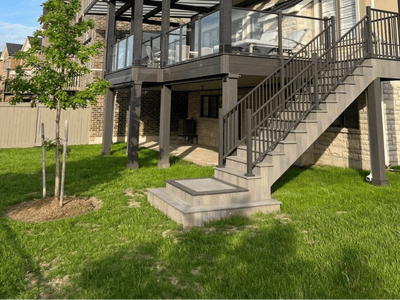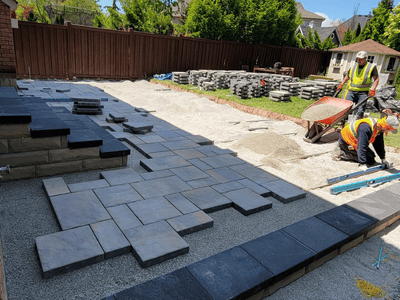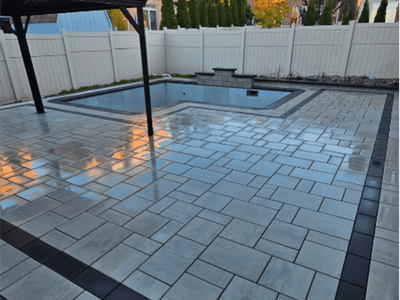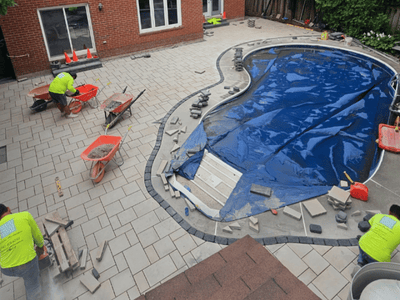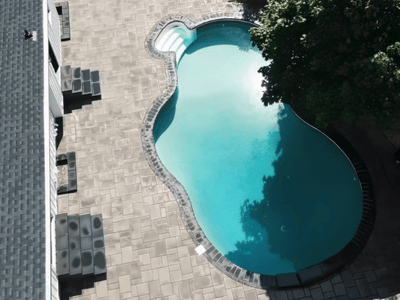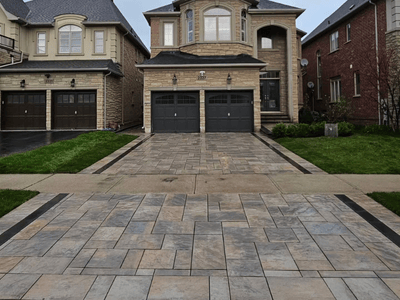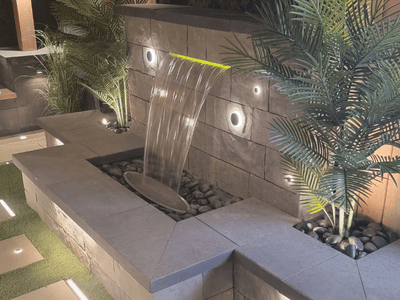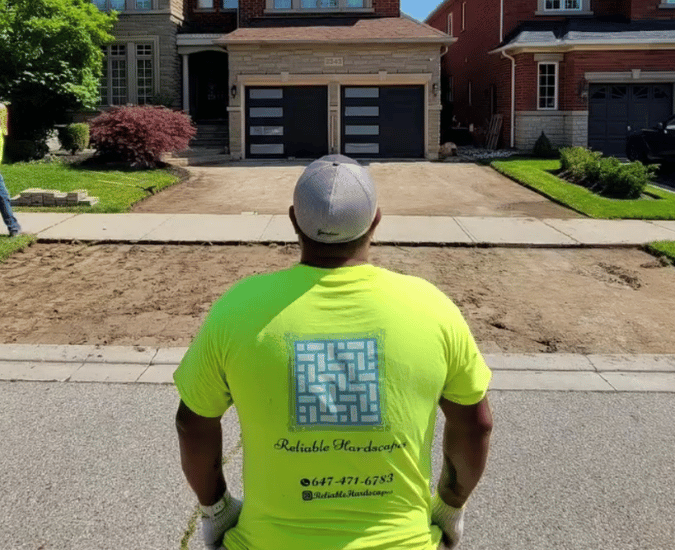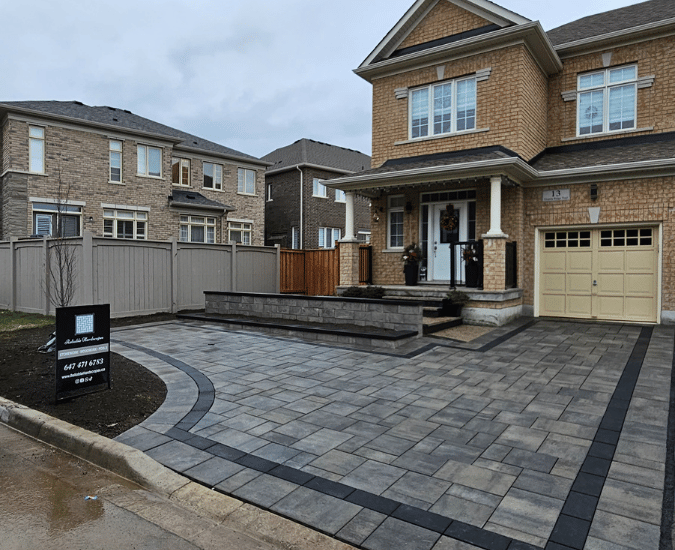The Complete Guide to Interlocking Walkways in Mississauga: Designs, Materials, and Installation Tips
Interlocking walkways have become a popular choice for homeowners in Mississauga looking to enhance the beauty and functionality of their properties. Whether you’re designing a new garden path, updating your front yard, or adding a stylish and durable walkway, interlocking stones and pavers offer a variety of benefits. In this guide, we’ll walk you through everything you need to know about designing, installing, and maintaining interlocking walkways.
Why Choose Interlocking Walkways for Your Mississauga Home?
Interlocking walkways are a fantastic option for homeowners seeking a versatile, durable, and aesthetically pleasing path for their property. These walkways are made up of individual stones or pavers that lock together, offering several advantages:
Durability: Interlocking stones are resistant to shifting, cracking, and weathering, ensuring your walkway lasts for many years.
Low Maintenance: Unlike traditional concrete paths, interlocking walkways are easy to clean and repair.
Aesthetic Appeal: With a wide variety of colors, patterns, and materials available, you can create a unique and stylish walkway that complements your home’s exterior.
What Are Interlocking Walkways?
Interlocking walkways are constructed using individual pavers, stones, or bricks that are designed to lock together securely. These walkways provide a flexible solution for creating paths in gardens, backyards, and even driveways. The materials used can range from natural stones like granite or limestone to more modern options such as concrete pavers and bricks.
Types of Interlocking Walkways
Interlocking Paver Walkways: Known for their versatility, pavers come in various shapes, sizes, and colors, allowing for customized designs.
Interlocking Stone Paths: These walkways use natural stone for a more rustic, timeless look, often found in traditional or nature-inspired gardens.
Interlocking Brick Sidewalks: Ideal for a more classic and structured design, brick walkways offer a sense of tradition while remaining functional.
Interlocking Garden Paths: Perfect for smaller, more intimate spaces like gardens, these paths can wind through your landscape, creating a charming and inviting atmosphere.
Choosing the Right Design for Your Interlocking Walkway
When designing your interlocking walkway, there are several factors to consider to ensure it complements your home and landscape. Think about the size, shape, and style of the path, as well as how it will fit into your existing landscaping.
Curved vs. Straight Walkways: Curved paths are great for naturalistic landscapes, creating a flow that integrates seamlessly with gardens, while straight paths offer a cleaner, more formal appearance.
Mixing Patterns: You can use a variety of paver sizes and shapes to create visual interest, whether it’s a checkerboard pattern, herringbone, or a more random design.
Material Selection: The material you choose should coordinate with your home’s exterior and your overall landscape design. For a modern look, concrete pavers might work best; for a more organic look, natural stones or bricks could be better.
Best Materials for Interlocking Walkways
Choosing the right material for your walkway is key to ensuring it complements your home and stands up to the elements. Some popular materials include:
Interlocking Pavers: These are versatile, durable, and come in a range of colors and textures, making them suitable for most designs.
Natural Stones: Stones such as slate, limestone, and granite offer a unique, organic look, though they may require more maintenance than pavers.
Concrete Pavers: Affordable and easy to work with, concrete pavers are an excellent option for those on a budget but still seeking quality and durability.
What Is the Cost of Installing an Interlocking Walkway in Mississauga?
The cost of installing an interlocking walkway depends on various factors, including the materials chosen, the size of the area, and the complexity of the design. Here’s a rough breakdown:
Material Costs: The cost per square foot can vary greatly depending on whether you choose concrete pavers, natural stone, or interlocking bricks. Concrete pavers tend to be the most affordable, while natural stone can be significantly more expensive.
Labor Costs: Professional installation costs can vary based on the complexity of the design and the contractor you hire. Typically, expect to pay for excavation and base preparation, along with the installation of the pavers.
Additional Costs: Don’t forget to factor in sealing the pavers to protect them from weathering and staining, which can add to the cost.
The Installation Process
Installing an interlocking walkway involves several steps. Here’s a general overview of the process:
Site Preparation: The area is excavated and leveled to ensure proper drainage and support for the walkway.
Base Layer: A layer of gravel and sand is added to create a stable foundation for the pavers.
Paver Placement: The pavers are carefully placed in the desired pattern, making sure they fit snugly together.
Sealing: Once the pavers are in place, they’re sealed to protect them from weathering, stains, and dirt buildup.
How to Maintain Your Interlocking Walkway
Maintaining your interlocking walkway is fairly simple, but it’s important to do it regularly to ensure its longevity. Here are a few tips:
Regular Cleaning: Sweep debris and dirt regularly, and power wash the walkway once or twice a year to keep it looking new.
Check for Settling: Over time, some pavers may settle. If this happens, simply lift the pavers and adjust them as needed.
Weed Prevention: Make sure to apply a weed barrier under the pavers to keep weeds from growing between them.
Conclusion
Interlocking walkways are an excellent investment for any homeowner looking to enhance their outdoor space in Mississauga. With a variety of materials, designs, and installation options available, you can create a path that suits your style and needs. By following the tips outlined in this guide, you’ll be able to design and maintain a walkway that lasts for years to come.



